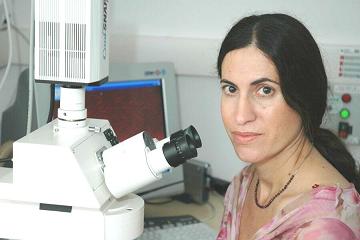Dr. Ben-Yehuda's scientific work is groundbreaking in the field of molecular biology

Dr. Siegel Ben Yehuda, a researcher from the Faculty of Medicine at the Hebrew University of Jerusalem, will receive the University President's Award for Outstanding Young Researcher for the year 6, at a ceremony to be held on December XNUMX. According to the president of the university, Professor Menachem Magidor, Dr. Ben-Yehuda will receive the award because "her ground-breaking scientific work, publications and achievements place her in the forefront of the young researchers at the university."
Dr. Siegel Ben Yehuda, a researcher in the Department of Molecular Biology at the Faculty of Medicine, received last year the Faculty Dean's Award for Outstanding Young Researcher for the year XNUMX. Ben Yehuda is the only Israeli scientist selected last year for the prestigious young researcher program of EMBO, the European Organization for Molecular Biology. She was accepted into the program thanks to her work in the field of repairing damaged DNA in the process of differentiation in bacteria.
Last year, Dr. Ben Yehuda led a group of researchers from the Hebrew University who were able to observe and describe for the first time how damaged DNA is recognized by a cellular protein. The research has shed new light on the understanding of the molecular mechanism of searching for and identifying DNA damage, and it is likely that it will also help in the study of diseases involving damaged DNA, such as cancer.
The awarding ceremony of the university president's award to the late Yoram Ben-Forat outstanding young researcher will take place on Thursday, December 6, in the Rubin Auditorium in the Student House building, in the Ein Kerem Faculty of Medicine of the Hebrew University of Jerusalem.

4 תגובות
Just a super cannon
!@#$%^&*)(_+good luck!@#$%^&*)(_+
Well done!
Congratulations to Doctor Ben-Yehuda for winning the award.